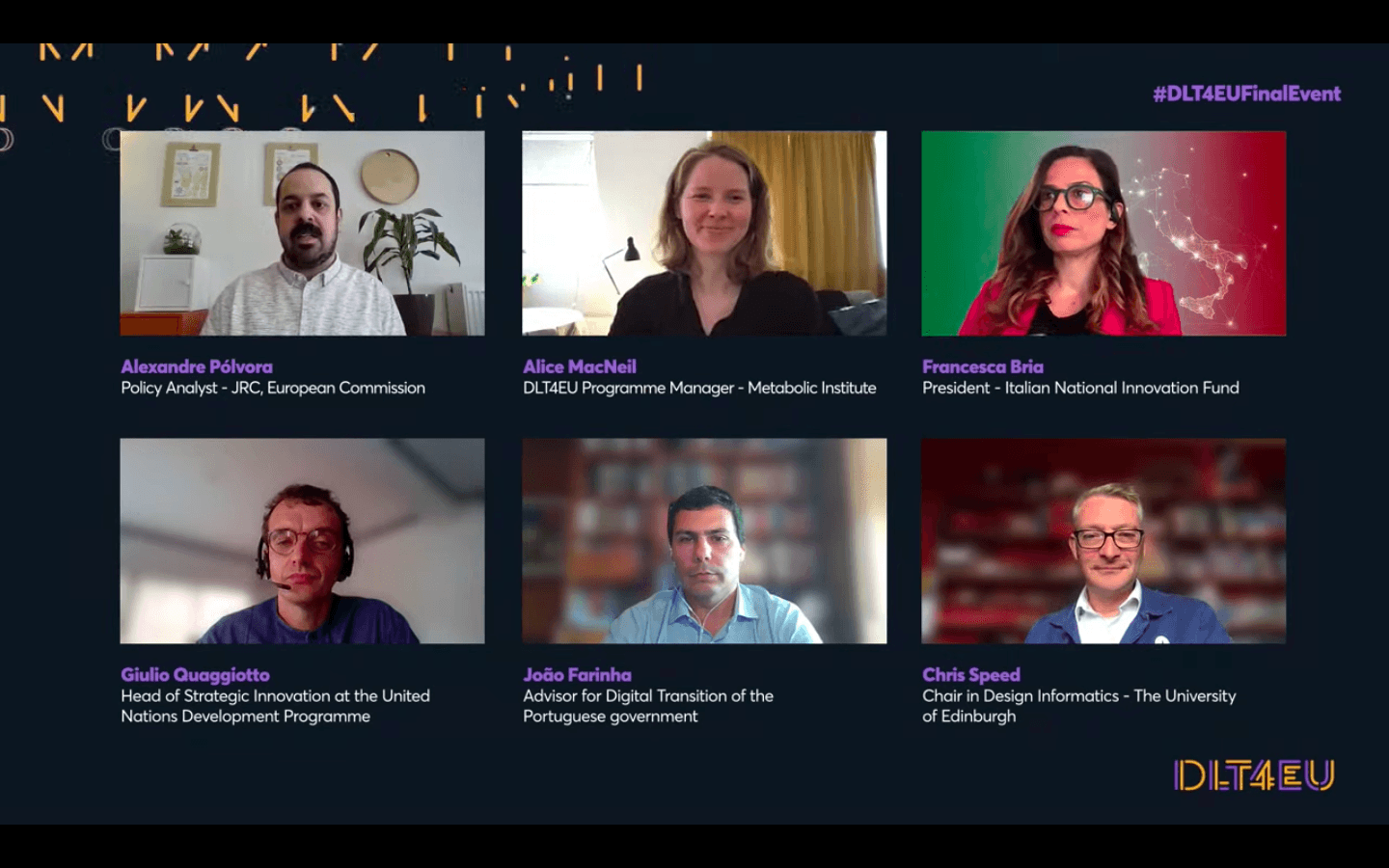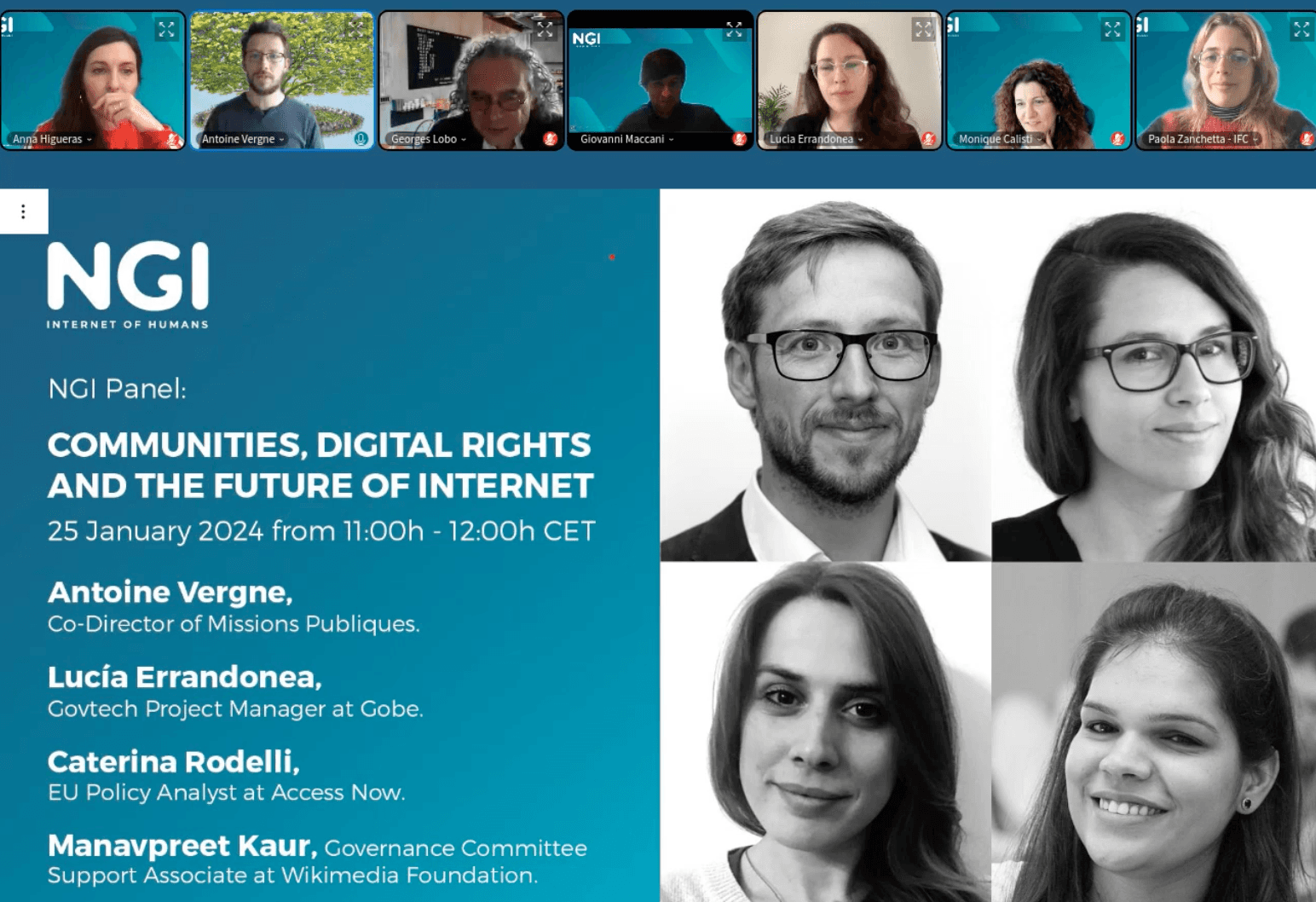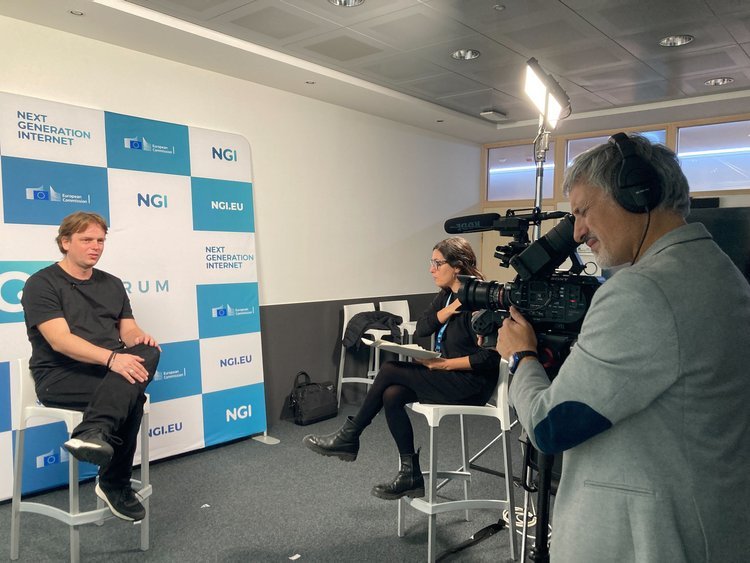Scientific research
Scientific research
DLT4EU ends its acceleration programme for the common good
DLT4EU ends its acceleration programme for the common good
17 de junio de 2021


By the editorial team. (Original publication in Spanish)
Every project comes to an end, and DLT4EU is no exception. After months of work, learning, and, above all, interesting challenges, the pioneering acceleration programme that promotes the adoption of DLT solutions – Distributed Ledger Technology or distributed technologies – in the public sector funded by the European Commission has concluded. Which teams have received extra funding to continue developing their proposals? Has it been discovered whether this type of technology can truly address environmental and social challenges? Keep reading to find out the answers!
A televised event to bid farewell to a pioneering programme
On May 6th, we celebrated, alongside our partners Metabolic and Digital Catapult, the final event of the project. A day that, despite taking place virtually, captured the excitement of bringing together the entire community that has made this project possible.
The event featured a dialogue panel with experts in the use of technologies for the common good, such as Francesca Bria, president of the Italian Innovation Fund; Giulio Quaggiotto, head of Strategic Innovation at the United Nations Development Programme (UNDP); Fabrizio Sestini, director of Social Innovation at DG CONNECT of the European Commission; João Farinha, advisor to the Portuguese Secretary of State for Digital Transition; Chris Speed, professor of Design Informatics at the Edinburgh College of Art; and Alexandre Pólvora, analyst at the European Commission's Joint Research Center.

They all shared the need to promote more programmes like DLT4EU that advance experimentation and help transform society by driving innovation with impact in the public and social realms. In the specific case of the DLT4EU programme, the development of solutions was proposed through the use of blockchain, and in all cases, the resulting solutions are available as Open Source. During the meeting, they also emphasized the creation of a European model of digital sovereignty that addresses climate impact and preserves citizens' rights.
However, the protagonists of the day were the 8 teams from the accelerator that have worked for months to address challenges framed within circular economy and digital citizenship through DLT technologies. After a long deliberation by a jury of experts in the field, three of them were selected by the programme for their contribution to the common good and received extra funding to develop their projects.
Reusing electronic equipment to combat the digital divide
The circular consumption system of electronic devices for the City Council of Sant Boi, developed by the Spanish association Ereuse, was one of the winning solutions of the programme. The initiative promotes reuse and extends the useful life cycle of computers and other electronic devices by distributing them to schools and families in vulnerable situations. The process is based on a peer-to-peer platform of DLT technology that coordinates the refurbishment of unused devices, measures the level of circularity, and reduces environmental impact and the digital divide in the city.
The revolution of impact reporting by NGOs
The British platform Alice.si, in collaboration with Digital Future Society, has been awarded for its data automation system, a solution that simplifies the information and verification processes of humanitarian agencies. The technology enhances the ability to present impact reports for the Instant Networks School, led by the Vodafone Foundation, UNHCR, and the UN Agency, to facilitate the digital education of young refugees in Africa. Through a process that incorporates artificial intelligence predicting the performance of the programme in question, the usual costs for producing impact reports have been eliminated. An innovative and pioneering idea that benefits the transparency and justification of results in humanitarian development programmes.
DLTs to empower women cooperatives in Morocco
The third winning solution of the programme is the digital passport from the international company Convergence.tech, which facilitates the direct trade of argan oil between women cooperatives in Morocco and the countries where there is more demand for this oil, mostly in Europe. Through DLT, this system helps improve the market and shortens supply chains between exporters and buyers. A challenge posed by the UNDP Alternative Finance Lab and the UNDP Morocco, which generates a positive impact on the industry and stimulates sales.
DLT beyond technology
One of the most valuable lessons revealed by the DLT4EU project is that distributed technologies can generate benefits not only at the digital or economic level, but also in the social sphere.
The circular consumption of electronic devices reduces environmental impact while helping to equitably distribute these resources so that everyone can benefit from them. On the other hand, simplifying the verification processes of humanitarian organizations facilitates their work, improves their public image by providing transparency to their actions, and helps to give a voice to their efforts. Finally, platforms that shorten supply chains create more resilient, sustainable businesses and valorize the work of historically disadvantaged groups such as women entrepreneurs and workers, still undervalued in many countries and sectors. The programme we have had the pleasure to support has recognized just a few examples of the good use of DLT technologies for the common good, but the potential of these technologies is still immense.
After a year and a half of intense work, DLT4EU has finished, but its ecosystem remains active. We thank the great work of all the teams that have participated in the accelerator, contributing their ideas to the challenges, and to the consortium and experts behind the project. Big challenges require extraordinary solutions and teams, and we are extremely proud to have contributed to these advances.
Relive the final event
By the editorial team. (Original publication in Spanish)
Every project comes to an end, and DLT4EU is no exception. After months of work, learning, and, above all, interesting challenges, the pioneering acceleration programme that promotes the adoption of DLT solutions – Distributed Ledger Technology or distributed technologies – in the public sector funded by the European Commission has concluded. Which teams have received extra funding to continue developing their proposals? Has it been discovered whether this type of technology can truly address environmental and social challenges? Keep reading to find out the answers!
A televised event to bid farewell to a pioneering programme
On May 6th, we celebrated, alongside our partners Metabolic and Digital Catapult, the final event of the project. A day that, despite taking place virtually, captured the excitement of bringing together the entire community that has made this project possible.
The event featured a dialogue panel with experts in the use of technologies for the common good, such as Francesca Bria, president of the Italian Innovation Fund; Giulio Quaggiotto, head of Strategic Innovation at the United Nations Development Programme (UNDP); Fabrizio Sestini, director of Social Innovation at DG CONNECT of the European Commission; João Farinha, advisor to the Portuguese Secretary of State for Digital Transition; Chris Speed, professor of Design Informatics at the Edinburgh College of Art; and Alexandre Pólvora, analyst at the European Commission's Joint Research Center.

They all shared the need to promote more programmes like DLT4EU that advance experimentation and help transform society by driving innovation with impact in the public and social realms. In the specific case of the DLT4EU programme, the development of solutions was proposed through the use of blockchain, and in all cases, the resulting solutions are available as Open Source. During the meeting, they also emphasized the creation of a European model of digital sovereignty that addresses climate impact and preserves citizens' rights.
However, the protagonists of the day were the 8 teams from the accelerator that have worked for months to address challenges framed within circular economy and digital citizenship through DLT technologies. After a long deliberation by a jury of experts in the field, three of them were selected by the programme for their contribution to the common good and received extra funding to develop their projects.
Reusing electronic equipment to combat the digital divide
The circular consumption system of electronic devices for the City Council of Sant Boi, developed by the Spanish association Ereuse, was one of the winning solutions of the programme. The initiative promotes reuse and extends the useful life cycle of computers and other electronic devices by distributing them to schools and families in vulnerable situations. The process is based on a peer-to-peer platform of DLT technology that coordinates the refurbishment of unused devices, measures the level of circularity, and reduces environmental impact and the digital divide in the city.
The revolution of impact reporting by NGOs
The British platform Alice.si, in collaboration with Digital Future Society, has been awarded for its data automation system, a solution that simplifies the information and verification processes of humanitarian agencies. The technology enhances the ability to present impact reports for the Instant Networks School, led by the Vodafone Foundation, UNHCR, and the UN Agency, to facilitate the digital education of young refugees in Africa. Through a process that incorporates artificial intelligence predicting the performance of the programme in question, the usual costs for producing impact reports have been eliminated. An innovative and pioneering idea that benefits the transparency and justification of results in humanitarian development programmes.
DLTs to empower women cooperatives in Morocco
The third winning solution of the programme is the digital passport from the international company Convergence.tech, which facilitates the direct trade of argan oil between women cooperatives in Morocco and the countries where there is more demand for this oil, mostly in Europe. Through DLT, this system helps improve the market and shortens supply chains between exporters and buyers. A challenge posed by the UNDP Alternative Finance Lab and the UNDP Morocco, which generates a positive impact on the industry and stimulates sales.
DLT beyond technology
One of the most valuable lessons revealed by the DLT4EU project is that distributed technologies can generate benefits not only at the digital or economic level, but also in the social sphere.
The circular consumption of electronic devices reduces environmental impact while helping to equitably distribute these resources so that everyone can benefit from them. On the other hand, simplifying the verification processes of humanitarian organizations facilitates their work, improves their public image by providing transparency to their actions, and helps to give a voice to their efforts. Finally, platforms that shorten supply chains create more resilient, sustainable businesses and valorize the work of historically disadvantaged groups such as women entrepreneurs and workers, still undervalued in many countries and sectors. The programme we have had the pleasure to support has recognized just a few examples of the good use of DLT technologies for the common good, but the potential of these technologies is still immense.
After a year and a half of intense work, DLT4EU has finished, but its ecosystem remains active. We thank the great work of all the teams that have participated in the accelerator, contributing their ideas to the challenges, and to the consortium and experts behind the project. Big challenges require extraordinary solutions and teams, and we are extremely proud to have contributed to these advances.


